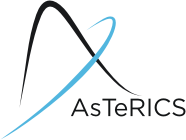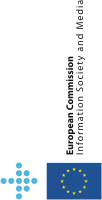ASTERICS – TOWARDS A RAPID INTEGRATION CONSTRUCTION SET FOR ASSISTIVE TECHNOLOGIES
Authors:
Gerhard NUSSBAUM, Christoph VEIGL, Javier ACEDO, Zdenek BARTON, Unai DIAZ, Tomas DRAJSAJTL, Alvaro GARCIA, Konstantinos KAKOUSIS, Klaus MIESENBERGER, George Angelos PAPADOPOULOS, Nearchos PASPALLIS, Karol PECYNA, Aureli SORIA-FRISCH, Christoph WEISS
Abstract:
Objective
Nowadays, a considerable number of AT devices based on information and communication technologies have become available. These devices often ask for adaptation of software and/or hardware to fit the user‘s abilities. All too often, assistive tools that have been optimised for a particular application cannot be used in other situations. The EC-funded project AsTeRICS aims to provide a flexible and affordable construction set for building assistive functionalities which can be highly adapted to individual user’s needs.
Main Content
AsTeRICS combines a scalable OSGi architecture of plugins for classical-, BNCI- and computer vision sensors with actuators to interact with the environment. The core element of the AsTeRICS system is the AsTeRICS Personal Platform, an embedded computing system, which processes data from input modules and controls output to actuator modules to put assistive functionalities in place. Sensors and actuators are connected to this embedded computing platform by wire or wirelessly. The system is configured via a graphical software suite. Primary and secondary users can modify key parameters to adapt the AT-setup to changes in the user’s abilities. To ensure a highly usable system primary and secondary users are involved throughout the whole project (user centred design methodology).
Result
The first results of the user involvement and the resulting overall architecture of AsTeRICS are discussed in this paper.
Conclusion. AsTeRICS respects the strong need for flexible, adaptable AT functionalities accompanying people with disabilities away from the desktop, enabling them to interact with a diverse and fast changing set of deeply embedded devices in our modern environment.
Keywords
Assistive Technologies, Ambient Assisted Living, Motor Disability, Component Based Software, BCI, Computer Vision, OSGi, Embedded, Mobile



